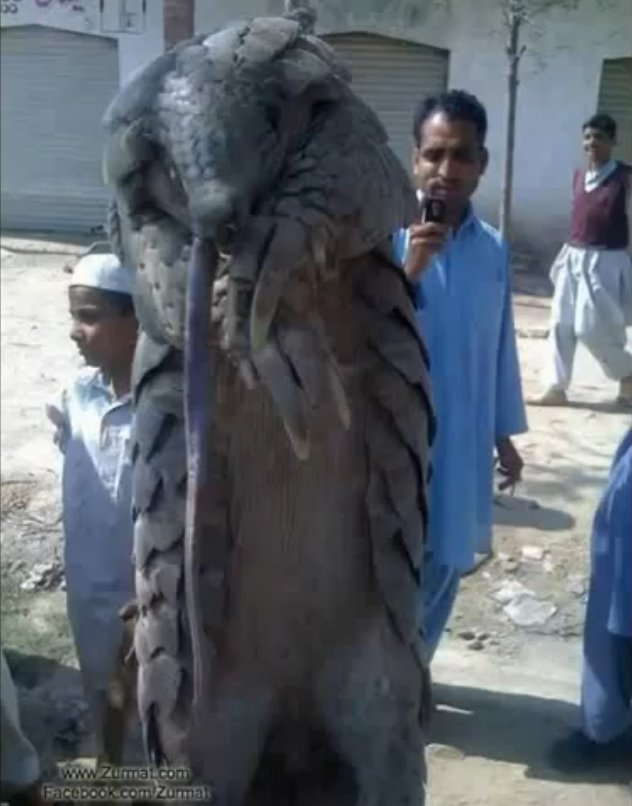A photo of a pangolin murdered in Pakistan was posted online, sparking ridiculous and misinformed claims that the animal was some kind of alien or supernatural creature.
Unfortunately, such statements were seen in a recent article on The Examiner, underscoring how much of the world is still unaware of these animals and their plight.
The report claims the animal was ‘giant’ and implied that pangolins don’t reach the size of the individual seen in the photograph; however, it would appear that the dead pangolin was simply held close to the camera, creating an optical illusion.
Pakistan’s illegal pangolin trade intensifying
It is unclear why the villagers killed the scaly anteater; however, it became evident earlier this year that the illegal pangolin trade is intensifying in Pakistan.
In March, a university professor reported on unchecked pangolin slaughter in the nation and suggested that it may be aided by politicians.
The professor and his team of researchers discovered nearly 50 dead, de-scaled pangolins in Pakistan between December 2011 and March 2012 (a four month period).
Global pangolin crisis
These insectivorous mammals — and their scales — are in high demand in East and South Asia (predominantly in China and Vietnam), where the flesh of adults and fetuses are consumed as a delicacy and their scales are used to create superstition-steeped traditional Chinese medicines.
Despite there being no scientific evidence to back any of the medicinal claims made about pangolin scales (and other body parts), profiteers fallaciously claim such “remedies” can cure a wide variety of ailments — even cancer.
In fact, pangolin scales are made keratin — the same protein of which rhino horns and even our own hair and nails are comprised.
Peer-reviewed lab studies have proven rhino horn is void of any curative, medicinal properties, which means the same is likely also true for pangolin scales.
It appears that China’s extremely controversial ‘medicinal-use pangolin farms‘ have been stimulating the demand for these illegal products in much the same way that tiger and bear bile farms have encouraged illegal plundering of those imperiled creatures around the world.
The insatiable demand ultimately claimed an estimated 43,000 – 62,800 pangolins from the wild in 2011 alone and, in just the first seven months of this year, it’s believed another 10,000 – 13,000 have been ripped from ecosystems in Asia and Africa for this black market trade.
As a result, all Asian and African pangolin species are being pushed dangerously close to extinction.
A photo of the supposed dead “alien” pangolin that was posted in an extremely distasteful video on YouTube:
Author: Sarah Pappin. Read more about Sarah here.
Image via YouTube
Want to help? Check out our pangolin t-shirts: Project Pangolin is contributing $2.00 per t-shirt or hoodie to Education for Nature-Vietnam.



![Pangolin Scales Seized in Hong Kong, 2 Arrested [Photos]](http://pangolins.org/wp-content/uploads/2015/08/WorldPangolinDay2013-01-copy-150x150.jpg)
Comments are closed.